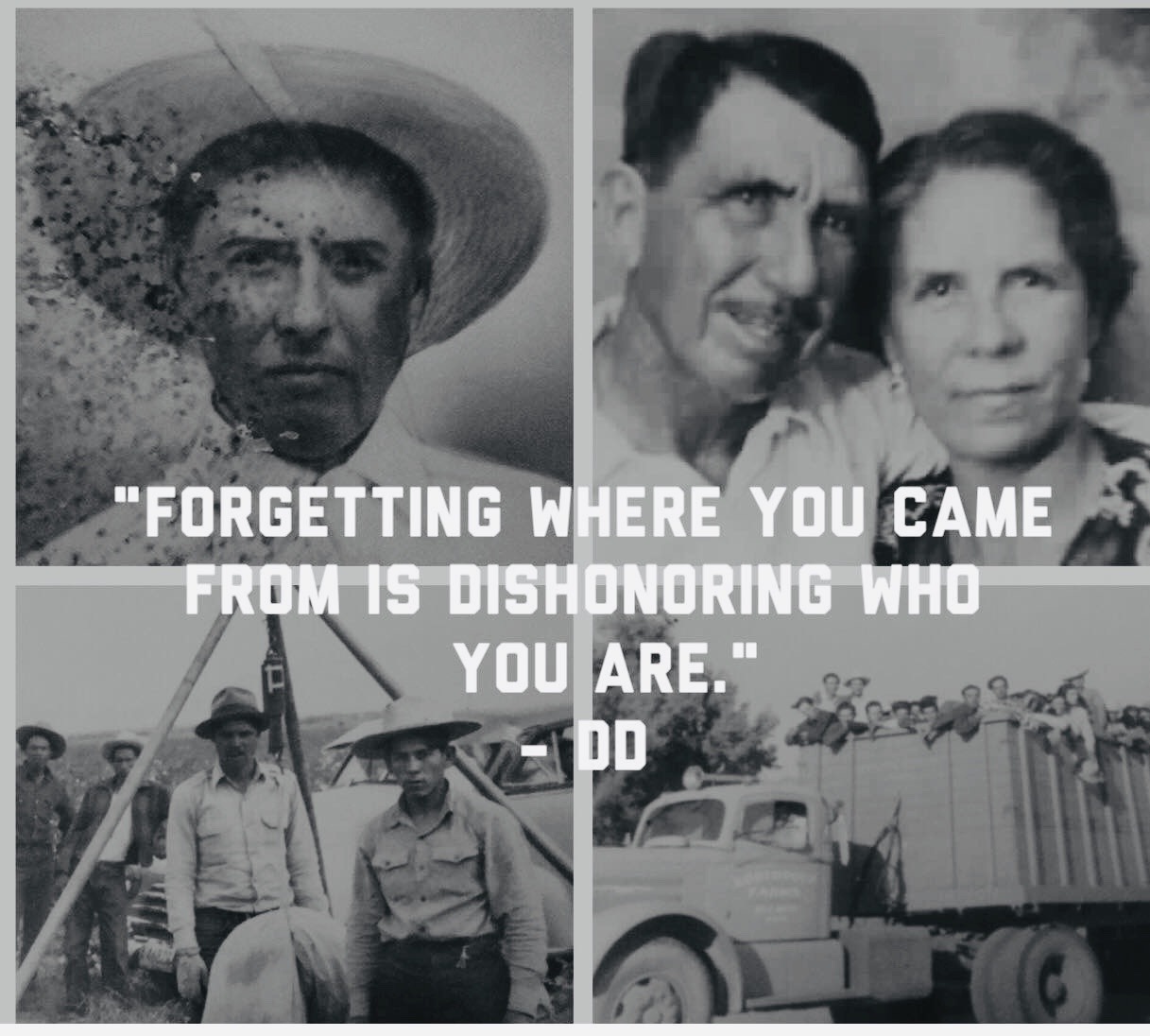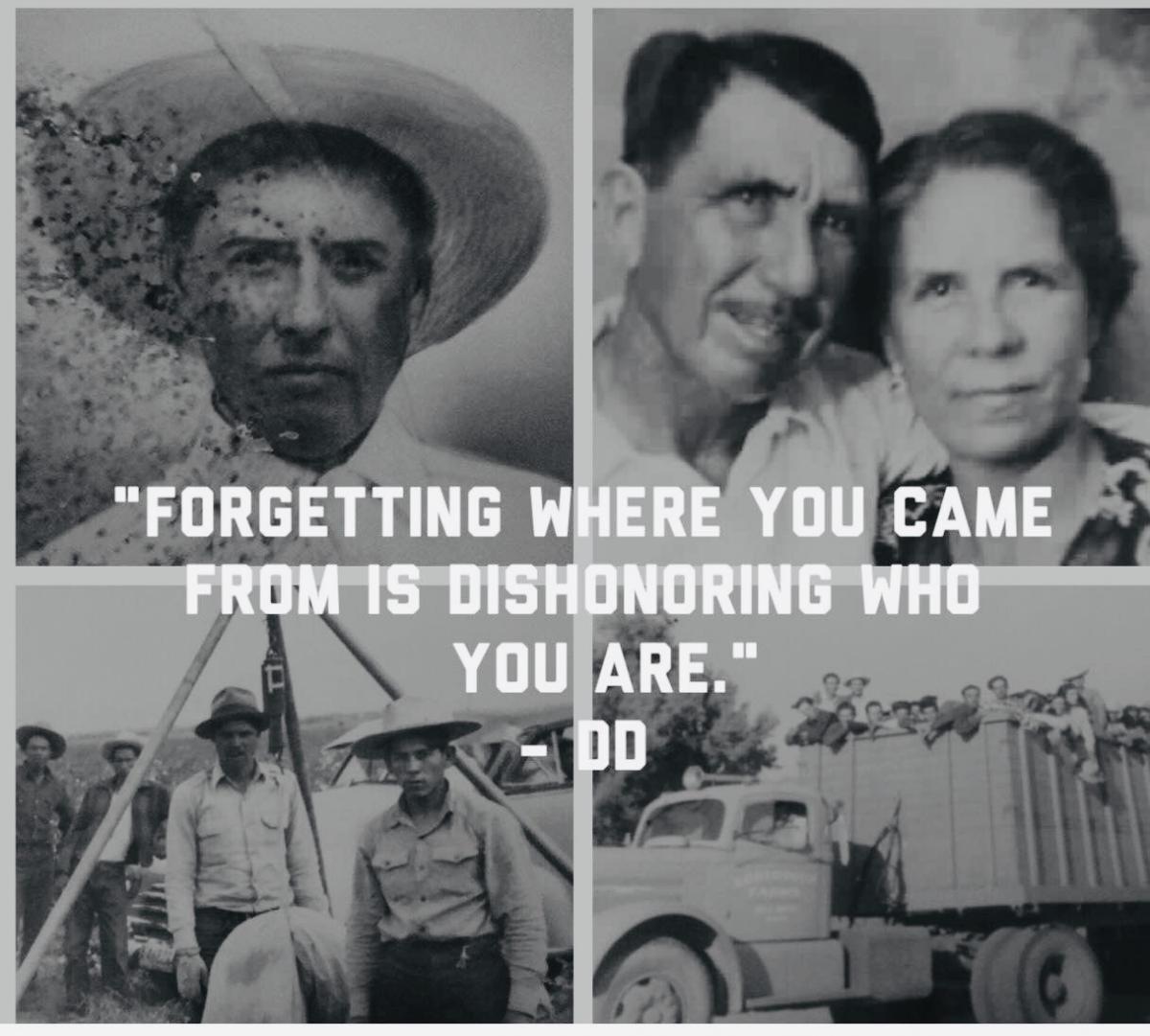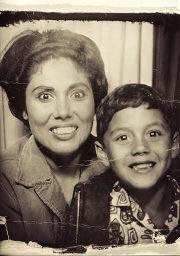National Farmworker Awareness Week and Women’s History Month: Forgetting Where You Came From is Denying Who You Are

By David Damian Figueroa
When I was a young boy, my mother repeated dichos, Mexican folk sayings, and American quotes as part of everyday life. My mother had been a child farmworker and only reached the sixth grade. What she may have been lacking in a formal education, she made up for with powerful words of wisdom. Dichos were her way of teaching me to become a better person…
By David Damian Figueroa
When I was a young boy, my mother repeated dichos, Mexican folk sayings, and American quotes as part of everyday life. My mother had been a child farmworker and only reached the sixth grade. What she may have been lacking in a formal education, she made up for with powerful words of wisdom. Dichos were her way of teaching me to become a better person.

Figueroa (paternal grandparents); Braceros in Buckeye, Arizona; and Hernandez Uncles.
My earliest memories are of being out in the agricultural fields of Buckeye, Arizona, with her, my aunts, and my cousins. Hardship was a part of life and some weeks we worked cleaning chicken coops to put food on the table. Mom would always say something positive to keep us going—something as simple and promising as “Life is not always going to be like this” or “This is only temporary”, and “Todo es possible” (Anything is possible).
My mom and aunts had early morning rituals. I remember waking up to the usual smells of beans cooking on the stove, coffee percolating in the pot, and bleach from the freshly mopped floors. Also, the comforting sounds of mom singing Spanish songs, eggs and potatoes hissing on the stove, and the rolling pin hitting the kitchen counter repeatedly as mom pounded out tortillas. Still dark outside, I remember we would make the trek out to the fields at LVL Ranch near Gila Bend, Arizona. My brother Jimmy, the cousins, and I would pile up in the back seat of the Impala and we’d fall asleep using each other as pillows. As soon as we arrived, I’d place all the lunch burritos on the car dashboard so they would keep warm. I used to sharpen all the hoes that we’d used to chop the weeds that would grow between cotton plants in the fields. One day I sliced my right pointing finger up pretty good.
My mom and aunts were always consulting with each another on what to wear to the upcoming

at Arizona State Fair in Phoenix, Arizona.
dance at the American Legion. They’d always tease each other and burst into laughter as they each proclaimed who would be the prettiest and get the most attention on the dance floor. When they were young girls and through their adolescent years, they used to pick cotton and carry huge burlap bags on their backs all day. Later in life, mom and her sisters all lived in constant back pain. They all walked hunched back and with a limp.
For me, working in the fields was an education you cannot learn from books or in school. My mother taught me to have faith, pray, sew, cook, clean house, wash clothes, iron, change a tire, run a lawn mower, and even do arts and crafts. She’d tell me, “You have to learn how do to all of these things because one day I will not be here.” She was right. Mom passed away tragically when she was still young. When a parent passes away, the loudest voice we hear is theirs. The dicho that has probably stood out most in my life is “Con dinero se puede comprar libros pero no la educación.” “You can purchase books with money, but money will not buy you an education or proper manners.”
The most important thing I learned from mom was from one of her dichos, “Forgetting where you came from is denying who you are.” She’d always remind me that although we were poor, we were happy, and that God was not forgetting us.
My mother will live forever with me through the love and wisdom she gave to me through her dichos. They have left an indelible impression in my mind, and I am her grateful son.
David Damian Figueroa is the Director of Development for Farmworker Justice
Figueroa is a former child farmworker and an activist, author, music & film producer, and Social Justice Artist. He is the co-executive producer of the critically-acclaimed documentary, “Food Chains” and associate producer of the documentary “The Harvest/La Cosecha,” The Children Who Feed America.”

